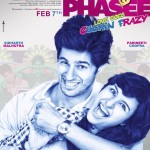 How does one woo the girl he desires to get close to? Chocolates? Gifts? Compliments? A lot of women like attention too… If she reciprocates with a coy smile or a blush, or breaks into a cheery laughter, the guy knows that the girl is reciprocating. The maxim hasee toh phasee holds so true then!
How does one woo the girl he desires to get close to? Chocolates? Gifts? Compliments? A lot of women like attention too… If she reciprocates with a coy smile or a blush, or breaks into a cheery laughter, the guy knows that the girl is reciprocating. The maxim hasee toh phasee holds so true then!
Come to think of it, when two polar opposites in terms of cinematic sensibilities — Dharma [Karan Johar] and Phantom [Anurag Kashyap, Vikramaditya Motwane, Vikas Bahl] — join hands and produce a project, one expects a genuinely hatke fare from this unique partnership. Additionally, the release of HASEE TOH PHASEE has been timed a week prior to the Valentine’s week and one expects this to be a scrumptious as well as distinctive take on love and romance, courtesy the two brands associated with the film. Is it one?
First, the plot! HASEE TOH PHASEE is about the rebellious Meeta [Parineeti Chopra] and the mischievous Nikhil [Sidharth Malhotra], who are struggling to fit into their respective families. Nikhil bumps into Meeta on the occasion of her sister Diksha’s wedding and falls in love with her other sister Karishma [Adah Sharma].
Years later, Nikhil and Karishma are busy with their pre-wedding celebrations. Meeta returns to Mumbai after being away from home for years [only Karishma is aware that she’s back!]. Karishma asks Nikhil to find her an accommodation, away from her family. Not happy with the accommodation that a contact has set up for Meeta, Nikhil lets Meeta live with his parents [Sharat Saxena, Neena Kulkarni] and relatives.
Gradually, Nikhil and Meeta get drawn towards each other. Nikhil is all set to marry Karishma, but is in love with Meeta…
Opposites attract and love blossoms. Doesn’t it sound perfect… and repetitive? Isn’t this the traditional formula for a rom-com? But HASEE TOH PHASEE dares to be distinctive. This one’s *not* merely about opposites falling in love. This one’s a quirky love tale involving two individuals, shades different from the mundane stuff on matters of heart.
First-time director Vinil Mathew creates a simplistic environ, weaving wonderful moments in the narrative. The humor is not of the slapstick variety [thankfully!]; it’s more subtle and situational. The emotional moments are not heavy either; they percolate most unpretentiously. I’d like to single out two episodes here, both in the second half of the enterprise: First, the emotional outburst of Manoj Joshi, when he comes face to face with Parineeti and second, the sequence during the closing stages of the film, between Sidharth and Parineeti. It gets you all moist-eyed.
What’s worth noting is that Vinil doesn’t speed up things to make Sidharth and Parineeti fall in love. Furthermore, the writer incorporates vignettes in the love story that appear so genuine, so bona fide. It won’t be erroneous to state that the film is in the same space as Hrishikesh Mukherjee/Basu Chatterjee films… subtle, restrained and natural. Conversely, there are times when you feel that the writing could’ve done with absorbing episodes towards the first half. The sluggish pacing is another deterrent [again, in the first hour!]. But these are minor glitches, since the post-interval portions manage to camouflage the deficiencies.
HASEE TOH PHASEE is gorgeously filmed and has the required finesse. Vishal-Shekhar’s musical score only enhances the mood and setting. The duo packs in soothing-and-soulful [‘Zehnaseeb’ and ‘Manchala’] and entertaining [‘Shake It Like Shammi’ and ‘Drama Queen’] tracks, making it an infectious album.
Sidharth is a revelation and the scene stealer! He enacts the role of the middle class guy with restraint and complete understanding. It’s a mature act, with the one-film-old actor handling the delicate moments with utmost sensitivity, bringing a lot of credibility on table. At the same time, he is full-on charismatic when required, especially in the dance numbers. One may assume that Parineeti is getting typecast in similar roles [spunky, quirky, livewire], but you’ve to credit the actress for bringing in a lot of freshness to her character in HASEE TOH PHASEE. Far from being a shy and bubbly girl, Parineeti is a delight to watch in sequences that are full of life. At the same time, she infuses subtlety and warmth in sequences that demand her to be serious/thoughtful. She is tremendous yet again. In short, the two actors, Sidharth and Parineeti, carry the weight of the love story on their able shoulders without floundering even in a single sequence.
Adah Sharma is a natural. One strongly feels she hasn’t got her due, despite leaving an impression in every film she’s featured in. She’s first-rate once again. The film stars a host of talented names such as Sharat Saxena, Manoj Joshi, Sameer Khakhar and Neena Kulkarni, but I’d like to single out Manoj Joshi [outstanding] and Sameer Khakhar [exceptional]. Anil Mange is super.
On the whole, HASEE TOH PHASEE is a bright-and-breezy, charming and refreshing rom-com that makes you smile, laugh and gets you moist-eyed at regular intervals. A qualitative film that warms the cockles of your heart. Go for it!
Rating: 3.5 Stars.
https://www.bollywoodhungama.com/moviemicro/criticreview/id/580749
Tags: chsocm Critics Reviews Hasee Toh Phasee Parineeti Chopra Reviews Sidharth Malhotra Taran Adarsh Vinil Mathew

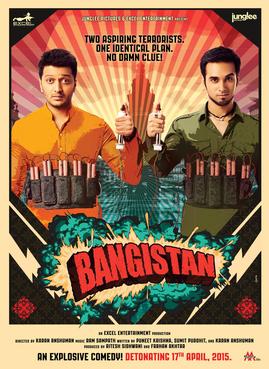
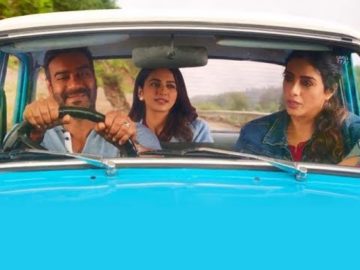
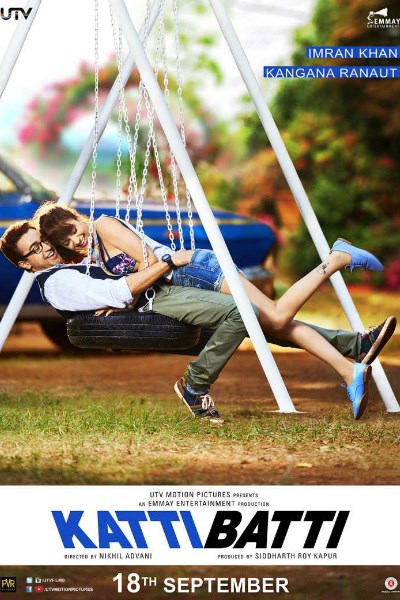
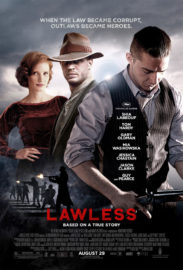

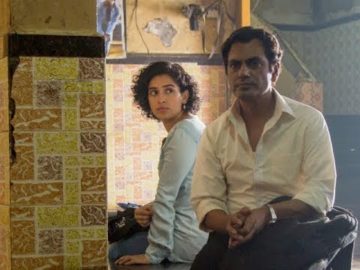

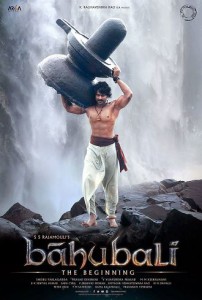
Hasee Toh Phasee Movie Review by Sukanya Verma
Hasee Toh Phasee wins you over
Hasee Toh Phasee takes a familiar premise — two people on the brink of tying the knot and introduces a third party to cause expected stir. Only it doesn’t happen like it used to, writes Sukanya Verma.
Socho mein idea hoti aur tum technology, humari patang kya mast udti na?” coos Parineeti Chopra in one of Hasee Toh Phasee’s *many* winning scenes. She could well be speculating about the outcome of a collaboration between Karan Johar’s spunk and Anurag Kashyap’s ingenuity.
These two prolific filmmakers with diametrically dissimilar body of work, along with co-producers, Vikramaditya Motwane and Vikas Bahl jointly spearhead what I found to be a delightful romance comedy.
Directed by Vinil Mathew and based on Harshavardhan Kulkarni’s story/screenplay, Hasee Toh Phasee takes a familiar premise — two people on the brink of tying the knot and introduces a third party to cause expected stir. Only it doesn’t happen like it used to. Instead how everything transpires is Hasee Toh Phasee in a nutshell.
Even though there’s a brief backstory to brief us about the temperament of sensitive Nikhil (Siddharth Malhotra) and peculiar Meeta (Parineeti Chopra), Hasee Toh Phasee doesn’t move cut to cut, it progresses gradually without letting us feel how time flies by. Like it usually happens when you’re in fascinating company.
Hasee Toh Phasee is that rare film that allows you to know the two people you’re investing in. And the closer you get, the more they win you over.
Meeta is… well, a lot of things. She’s a problem child for her traditional Gujarati household that doesn’t know how to handle her restless brilliance.
She’s her daddy’s girl (played with rare grace by Manoj Joshi) who smilingly overlooks her many mischiefs because he appreciates her extraordinary intellect.
She’s a scientist whose invention mirrors her own unstoppable, bouncing impulses.
She’s also an oddball, an eloper and a drifter who’s developed seriously unhealthy habits. The last bit is treated a tad too simplistically and mysteriously so as to not disrupt the rosy picture.
Playing the Yin to her Yang is Nikhil. He’s not as many things as Meeta. He’s just a simple, spirited, conscientious guy unable to fulfill people’s expectations of him but never, ever stops trying.
Whenever they’re together in a frame, the silver screen becomes cosy. Nikhil and Meeta’s conversations — “do half main ek full se zyada milta hai”–wear a seamless and soothing air, a quality sorely missing from their individual lives.
None of their chemistry would dazzle as brightly if Kulkarni’s nuanced script wasn’t as well written as it is. Writing is one of the greatest joys about Hasee Toh Phasee.
It documents the ambiance around its central protagonists with such delicacy and deftness; the getting to know stage feels more personal than ever.
Also, these bright, brimming, quirky faces, mostly family members or colleagues of Nikhil and Meeta, contribute a memorable punch to every single scene while remaining at the periphery.
Mathew’s ad filmmaking aesthetics and its well-timed hilarity (the mobile-obsessed uncle inquiring “Aur baaki? Aur baaki? Android?”/”Dengue ke machar raat ko nahi kaat te sir,” points out a correcting voice on the phone/The Legend of ACP Pradyuman/The antics of an Anu Malik enthusiast) ensures its ensemble cast of characters; their mini sub-plots and moments don’t drown in the wedding mob even as the viewer cracks up at regular intervals.
Shaadi as a backdrop is a done to death plot device but Hasee Toh Phasee resists using it in the conventional sense for manufactured flirtations. Instead it chooses to concentrate on overbearing relatives and domestic troubles like water shortage/insufficient toilets in a house crammed with guests.
And that’s why the Punjabi Wedding Song (scored by Vishal-Shekhar) in the later second half strikes as a terrible, terrible miscalculation. After ignoring its soundtrack like plague for three fourth of its running time, the final quarter goes wild squeezing in the remaining album with disappointing desperation.
While on the negatives, one wonders about the raw deal Karishma (Adah Sharma) gets. Given she’s the girl Nikhil is about to marry and Meeta’s very own sister, why is she kept out from all the action? One never really hears her point of view. To Adah’s credit, she doesn’t emerge like the nagging stuck-up Hasee Toh Phasee would like her to be.
Her suitor in the movie — Siddharth Malhotra may have let her down but he’s immensely likeable as the nervous, sweet, sweaty and disarming Nikhil. His endearing smile and awkwardness works perfectly for a role that relies on him to stay warm, generous and compliment his unusual heroine.
Speaking of her, not even the finest actress in this country today may be able carry off this role without appearing affected or jarring.
Meeta is a hyper, complex creature but all her turbulence happens in her mind. She may flicker her eyelashes faster than those twinkling LED Diwali lights, make a creepy face or two, attach a Magsafe onto a bus stop’s power source to generate charge in a car battery and spew scientific metaphors in the vein of Sheldon Cooper but she’s comfortably nonchalant.
And Parineeti sinks her teeth into this misunderstood kook without a trace of self-consciousness or exaggeration.
It’s love at first sight the moment she appears on screen, caught between a complex wire fence, in short hair and glasses, as though she was returning from some dress-up-like-Harry Potter cult.
If that’s not magical enough, what Hasee Toh Phasee celebrates certainly is. That the only high you need is life, love and smiles.
Rating: 3.5 Stars.
https://www.rediff.com/movies/review/review-hasee-toh-phasee-wins-you-over/20140207.htm
Hasee Toh Phasee Movie Review by Rajeev Masand
Rating: 3
February 07, 2014
Cast: Sidharth Malhotra, Parineeti Chopra, Adah Sharma, Sharat Saxena, Manoj Joshi, Neena Kulkarni, Anil Mange
Director: Vinil Matthew
A young man finds himself drawn to his fiancee’s sister in the days leading up to his wedding. That ghisa pita formula gets a fresh coat of paint in ad-filmmaker Vinil Matthew’s feature debut, Hasee Toh Phasee, a not-always-convincing but seldom boring romantic comedy. For the most part, Matthew and writer Harshvardhan Kulkarni stay away from standard tropes of Bollywood love triangles, choosing quirky humor over sappy sentimentality to endear their protagonists to us.
In between making preparations for the wedding, and trying to land a chunk of money to keep his event management business from floundering, Nikhil (Student of the Year’s Sidharth Malhotra) is handed charge of Meeta (Parineeti Chopra), the black sheep of his fiancee’s family. Back in town seven years after robbing her parents and running away, she must be kept hidden from them at all costs.
Chopra is terrific as Meeta, pill popping and crazy mannered, but a genius scientist adept at everything from repairing household gadgets to charging a car battery from the generator on an illuminated bus shelter. She has palpable chemistry with Malhotra, who’s in very good form as the rudderless Nikhil, conflicted in matters of both heart and career.
Unfolding against the lead-up to a big, fat Indian wedding, Hasee Toh Phasee gives us some of the funniest, most inspired moments in recent rom-com memory. A shopping trip to Bhuleshwar becomes complicated when an elderly grandma snaps her sandal-strap. Nikhil’s own father (Sharat Saxena) faces an embarrassing investigation when an expensive necklace goes missing. And, in one of my favorite scenes, Nikhil wakes up his father-in-law-to-be (Manoj Joshi) in the dead of the night to discuss wedding arrangements.
Indeed, it’s a bunch of such refreshingly original sequences, the unconventional bit characters that the makers throw in (a cousin who breaks into acapella renditions of Anu Malik songs, a millionaire investor who conducts business meetings in the sauna, a fat Gujarati uncle eager to make conversation), and the charming performances by the leads that make up for the many speed bumps in the plot. I was never fully sold on the reasons for Meeta’s dependence on anti-depressants, her real motivation to be reunited with her father, and the flimsy subplot about an unpaid loan in China. They come off as contrived in a film that’s otherwise delightfully off-centre.
Brimming with witty dialogue and some genuinely heartfelt moments, the film doesn’t snap even under the weight of its clichéd climax. At 2 hours and 21 minutes, it’s a tad long and repetitive, yet saved by some solid acting. Parineeti Chopra, in particular, deserves every accolade that’ll come her way; this is her fourth film release and once again she’s the best thing in it.
I’m going with three out of five for director Vinil Matthew’s Hasee Toh Phasee. Despite its problems, it’s pretty good fun. Go see it.
Link
Public Reviews
https://youtube.com/watch?v=M8k35arph0g